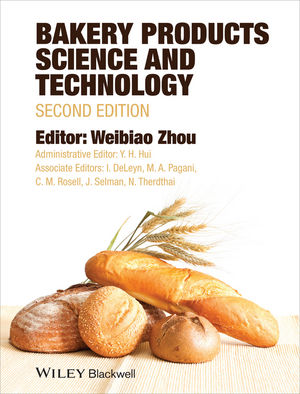Guarding Industry Interests
The Grain Foods Foundation is committed to educating consumers on the
important role grain-based foods play in a healthful diet, says
contributing columnist Judi Adams. However, the association is also
working on a daily basis to protect the interests of the industry in
the media.

The Grain Foods Foundation (GFF), Ridgway, Colo., is committed to educating consumers on the important role grain-based foods play in a healthy diet. We are also working on a daily basis to protect the interests of the industry in the media. Because of the nutrition misinformation disseminated daily, we strive to achieve these goals by sharing scientifically sound information with consumers, clinicians and researchers through a variety of communication channels. That’s why GFF created the Rapid Response program, which is designed to correct inaccuracies and share with the media the wealth of scientific studies supporting grains’ role in a balanced diet.
Given the almost instantaneous speed at which information travels, and with more media channels available today than ever before, including those platforms that allow consumers to publish their own content, it’s imperative to monitor in real time for misinformation on grains nutrition. As a registered dietitian and as a consumer, I can tell you how frightening it is to find reporters with no scientific background, spreading misinformation about proper nutrition. One of GFF’s daily activities is completing a thorough media scan in search of pieces related to grain foods; while these searches can yield balanced, credible nutrition advice, they can also reveal anti-grains messaging, which can range from recommendations to follow a low-carb or gluten-free diet for weight loss to blanket advice to cut out all “white products.”
When this is the case, GFF springs into action. In the past few months alone, we’ve identified and responded to pieces that ran in top-tier outlets, including The Washington Post, NPR, “TODAY,” “Good Morning America” and “The Dr. Oz Show.”
To ensure thoughtful and credible responses, we rely heavily on the experts who make up GFF’s Scientific Advisory Board. This interdisciplinary board comprises eight members, each of whom specializes in a different health-related practice, including endocrinology, cardiology, Hispanic nutrition, celiac disease and weight management.
Whenever an offending article is found in the media, the appropriate advisory board member is identified for collaborating on a response. For example, member Shelley Case, author of “Gluten-Free Diet: A Comprehensive Resource Guide,” contributes regularly to responses surrounding the gluten-free diet and when it is medically necessary to follow one while Sylvia Melendez-Klinger, founder of Hispanic Food Communications, Hinsdale, Ill., helps us educate the media about the importance of folic acid found in enriched grains for Hispanic women.
Of course, our outreach surrounding the role of grain foods in a healthy diet extends far beyond the reactive nature of the Rapid Response program. While we can never fully prevent the spread of misinformation about grains and nutrition, we can and do proactively share our grains nutrition messages with influencers and the media. This happens through our consumer campaigns such as The Bread Art Project and Sandwich Night, as well as regular engagement with consumers via social media channels and influencers at tradeshows. Each of these interactions ensures the delivery of useful (and credible) information to educate consumers and influencers about the wholesomeness of grains.
As a member of the industry, I ask all of us to keep our eyes and ears open for messages about grains and health. We all have a role to play in sharing the good news about grains in addition to halting the spread of nutrition misinformation. Rest assured that we at the GFF committed to keeping the industry’s voice as strong as ever in today’s deafening media environment.

The Grain Foods Foundation (GFF), Ridgway, Colo., is committed to educating consumers on the important role grain-based foods play in a healthy diet. We are also working on a daily basis to protect the interests of the industry in the media. Because of the nutrition misinformation disseminated daily, we strive to achieve these goals by sharing scientifically sound information with consumers, clinicians and researchers through a variety of communication channels. That’s why GFF created the Rapid Response program, which is designed to correct inaccuracies and share with the media the wealth of scientific studies supporting grains’ role in a balanced diet.
Given the almost instantaneous speed at which information travels, and with more media channels available today than ever before, including those platforms that allow consumers to publish their own content, it’s imperative to monitor in real time for misinformation on grains nutrition. As a registered dietitian and as a consumer, I can tell you how frightening it is to find reporters with no scientific background, spreading misinformation about proper nutrition. One of GFF’s daily activities is completing a thorough media scan in search of pieces related to grain foods; while these searches can yield balanced, credible nutrition advice, they can also reveal anti-grains messaging, which can range from recommendations to follow a low-carb or gluten-free diet for weight loss to blanket advice to cut out all “white products.”
When this is the case, GFF springs into action. In the past few months alone, we’ve identified and responded to pieces that ran in top-tier outlets, including The Washington Post, NPR, “TODAY,” “Good Morning America” and “The Dr. Oz Show.”
To ensure thoughtful and credible responses, we rely heavily on the experts who make up GFF’s Scientific Advisory Board. This interdisciplinary board comprises eight members, each of whom specializes in a different health-related practice, including endocrinology, cardiology, Hispanic nutrition, celiac disease and weight management.
Whenever an offending article is found in the media, the appropriate advisory board member is identified for collaborating on a response. For example, member Shelley Case, author of “Gluten-Free Diet: A Comprehensive Resource Guide,” contributes regularly to responses surrounding the gluten-free diet and when it is medically necessary to follow one while Sylvia Melendez-Klinger, founder of Hispanic Food Communications, Hinsdale, Ill., helps us educate the media about the importance of folic acid found in enriched grains for Hispanic women.
Of course, our outreach surrounding the role of grain foods in a healthy diet extends far beyond the reactive nature of the Rapid Response program. While we can never fully prevent the spread of misinformation about grains and nutrition, we can and do proactively share our grains nutrition messages with influencers and the media. This happens through our consumer campaigns such as The Bread Art Project and Sandwich Night, as well as regular engagement with consumers via social media channels and influencers at tradeshows. Each of these interactions ensures the delivery of useful (and credible) information to educate consumers and influencers about the wholesomeness of grains.
As a member of the industry, I ask all of us to keep our eyes and ears open for messages about grains and health. We all have a role to play in sharing the good news about grains in addition to halting the spread of nutrition misinformation. Rest assured that we at the GFF committed to keeping the industry’s voice as strong as ever in today’s deafening media environment.
Looking for a reprint of this article?
From high-res PDFs to custom plaques, order your copy today!






